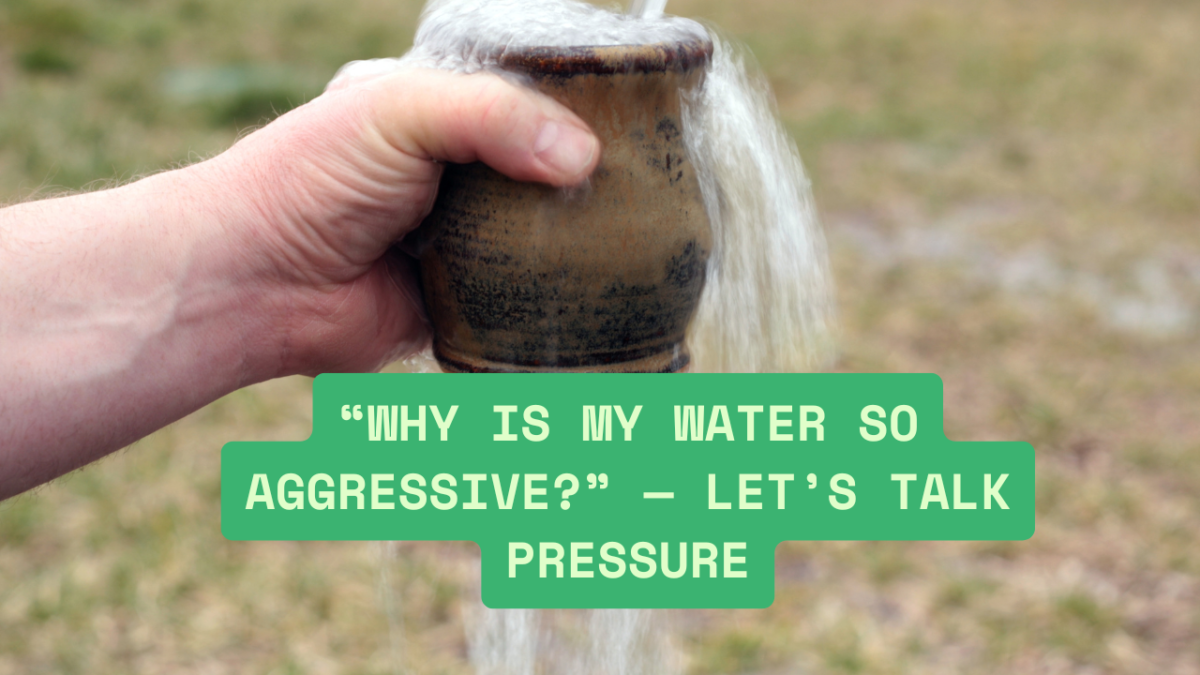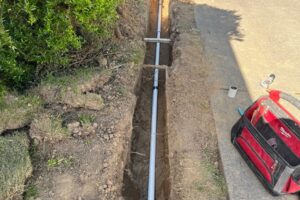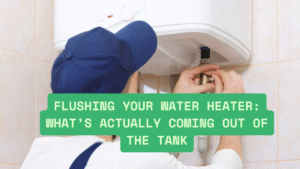Some homeowners worry about low water pressure.
But more often? We show up because the pressure is too high — and it’s quietly wrecking everything.
In Sacramento, it’s not uncommon for homes to get hit with 90–110 psi straight from the municipal line. That might make for a powerful shower, but it’s way over what your plumbing was built to handle.
What Happens When Pressure Goes Unchecked?
You probably won’t notice it right away. But high pressure works like a slow leak in your budget and your plumbing:
- Faucets start dripping (and never stop)
- Toilets keep running, even after you jiggle the handle
- Appliances burn out faster
- Pipes bang when you shut off water
- Water bills climb — even if you think you’re conserving
One small problem here and there doesn’t seem like much.
But when we check the pressure? Boom. 100+ psi.
No regulator. No adjustment. No protection.
“But Everything Seems Fine…”
Until it’s not.
We once had a client who called because their ice maker stopped working. Turns out, the pressure had pushed debris into the valve and clogged it.
Another had three faucet leaks in two months — and assumed it was just “old hardware.” Nope. Pressure was at 105 psi. Pipes weren’t built for that.
The signs aren’t always dramatic. But the damage adds up.
What “Optimizing Pressure” Actually Means
It’s not just about slapping on a valve.
Here’s what we do when optimizing a home’s pressure system:
- Test your current water pressure — right at the source
- Check for signs of damage — not just symptoms
- Install or adjust a pressure regulator — every house should have one
- Set the ideal pressure — usually around 55–60 psi
- Verify performance across fixtures — not just one hose bib
We’ve also replaced failed regulators that were silently stuck wide open. No warning, just years of high-pressure wear and tear.
Can You Do This Yourself?
You can buy a $15 pressure gauge and test your own water pressure. That’s a great start.
But installing or adjusting a regulator? That’s pro territory. You need to know:
- Where your main line runs
- What code requires
- How to size and set the unit correctly
- And how to spot warning signs before they become expensive ones
How Golden Valley Plumbing Handles It
We don’t just “drop in a valve.” We look at the full picture:
- What’s the pressure today?
- How’s your plumbing holding up?
- What’s the right fix for your house — not just a generic one?
Think your pressure might be off? Let’s check it. If you’re good, we’ll say so. If you’re not — we’ll make it right.
Pressure that’s too high doesn’t just waste water —
it quietly shortens the life of your entire plumbing system.
Let’s balance it out.




